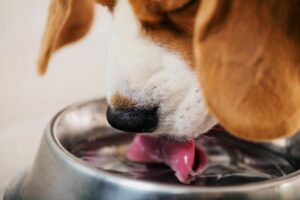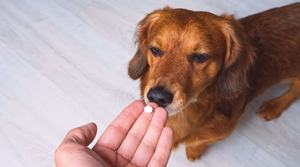
Reviewed & Fact-Checked by
Dr. Paula Simons
Veterinarian (DVM)
Learn more about our Veterinary Review Board »
You know that people often suffer from acid reflux - you may do so yourself. Also commonly referred to as heartburn, humans of all ages have been known to reach for the Tums to help solve the problem.
But did you know that dogs can suffer from acid reflux as well? And helping them deal with it involves a little more than chewing on a chalky pill.
What is Acid Reflux?
Acid reflux medically termed gastroesophageal reflux disease (GERD) - occurs when the contents of a pup's stomach flow in the wrong direction. The regurgitation of these things is an involuntary reaction. To a pet parent it may look as if their pup is vomiting, but that's not quite the case.
The difference is that if a pup is ill, and vomiting as a result, they will usually show other signs of illness like listlessness or being off their food. Vomiting is characterized with abdominal movements and retching. A dog dealing with acid reflux will usually seem perfectly normal until he 'spits up'. This is often spontaneous and comes without warning.
This is because it is the acid in his stomach and intestines causing the regurgitation of stomach contents.
What Causes Acid Reflux in Dogs?
Acid in reflux in dogs can have several causes. It can affect dogs of any age but it's more commonly seen in certain breeds like bulldogs.
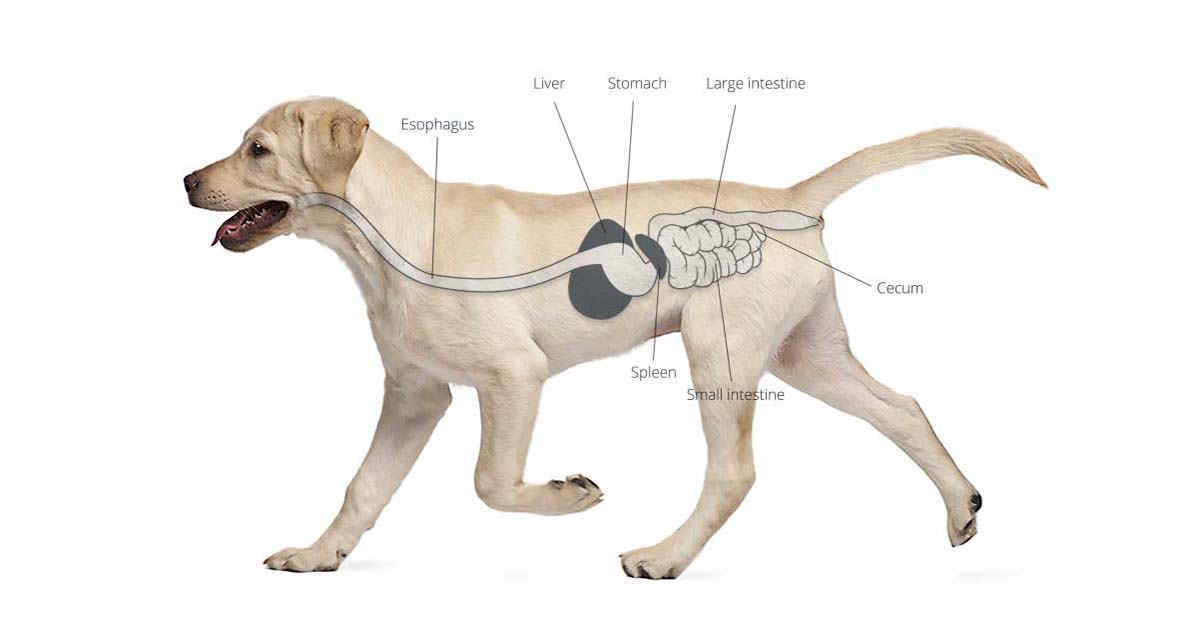
An image showing the location of the esophagus in a dog. (Photo Credit: Diamond Pet)
Some pups may suffer from acid reflux because their stomachs produce too much gastric acid (a common cause of the condition in humans as well) or the food they have just eaten was too rich, or too fatty, for their digestive system to cope with.
Other causes of acid reflux include a congenital condition called hiatal hernia, which is where the top of the stomach protrudes slightly into the diaphragm.
Certain medications - especially steroid medications - can cause acid reflux as well, as can obesity and high levels of calcium in the blood. Chronic gastrointestinal diease can also cause GERD due to inflammation of the stomach and small intestines.
Is Breed Type Another Risk Factor for GERD?
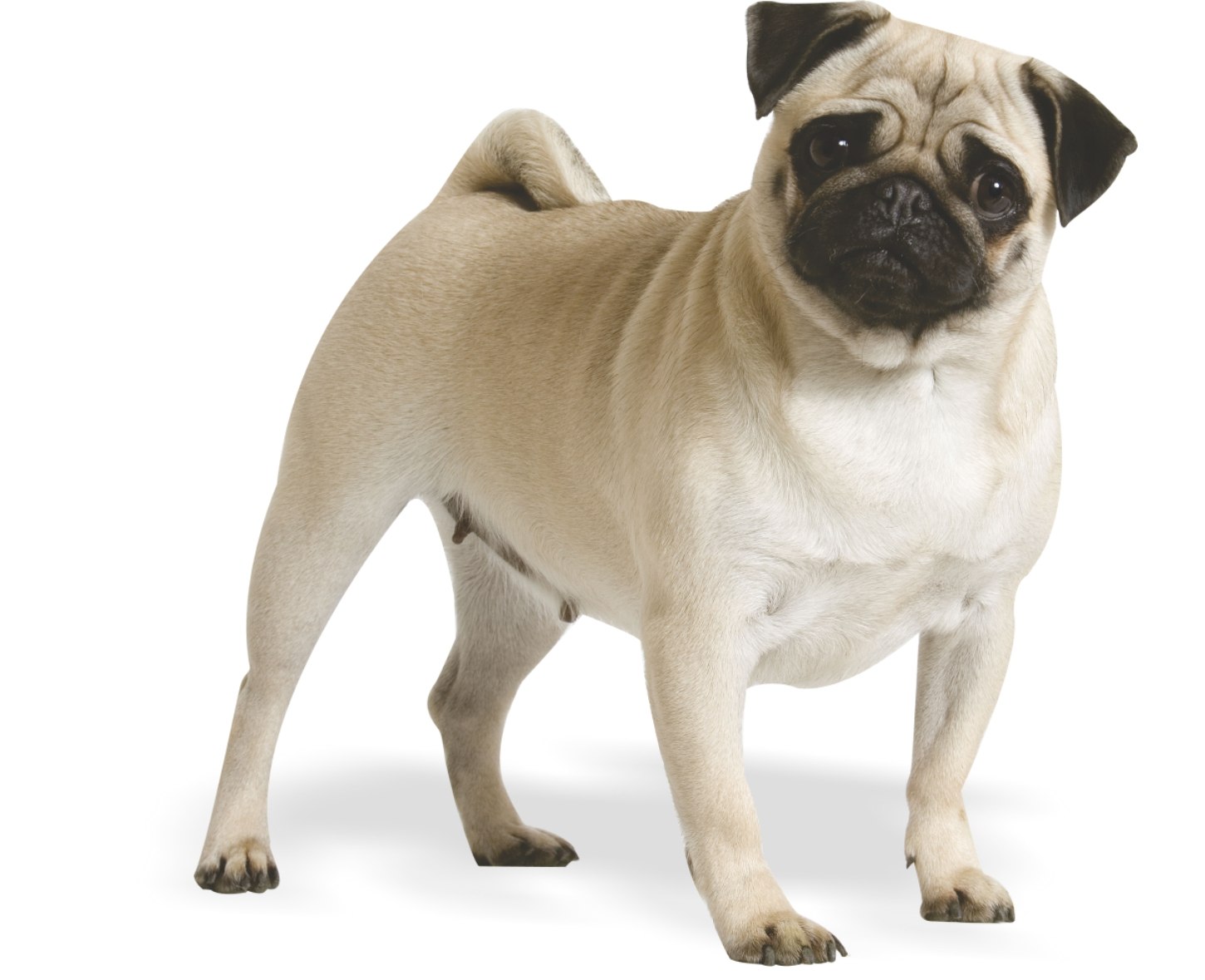
Brachycephalic dogs are those with a shortened nose such as Pugs, Shih Tzus, English Bulldogs and Chihuahuas
Studies suggest that breed type is another risk factor for GERD, with brachycephalic breeds in particular being at high risk. There is connection between upper airway obstruction and the pressure differential created across the diaphragm contributing to acid reflux.
How Can I Tell if My Dog has Acid Reflux?
Given that your pup can't ask for a Tums when he suffers from acid reflux (and that would not be the right way to treat him anyway) it is up to you as a pet parent to watch out for the signs and symptoms of gastroesophageal reflux in your dog.
These signs can include all the following:
- Lip smacking
- Coughing that produces a small amount of stomach contents
- Burping after eating
- Excessive drooling after eating
- Whining after eating
- Frequent/persistent bad breath
- Difficulty swallowing
As these symptoms are fairly vague, and could be related to a number of other causes as well. It's best to seek help from your vet as soon as you begin to notice them. Even though acid reflux in dogs is rarely life threatening, it is very uncomfortable for them and the production of bile and acid can damage their esophagus permanently or damage their lungs should the corrosive bile end up there.
How is Acid Reflux in Dogs Diagnosed?
If you are taking your pup to the vet because you suspect he is suffering from acid reflux in addition to a basic physical exam it is likely your vet will perform radiographs to ensure the esophagus and stomach are normal. Secondary to this, they may recommend endoscopy.
An endoscopy involves inserting a flexible scope with a camera on the end into your pup's esophagus.
He will be anesthetized during this process and which it allows the vet to see (literally) what is going on in his digestive tract.
An endoscopy allows your vet to rule out more complicated conditions, such as ulcers, or a hiatal hernia. It can also allow her to see if the regurgitation of stomach acids has led to damage to the esophagus itself.
What are the Treatment Options for Chronic Acid Reflux in Dogs?
If your pup is diagnosed with severe acid reflux, his treatment will depend on both the cause(s) of the condition and its severity.
Dietary Intervention
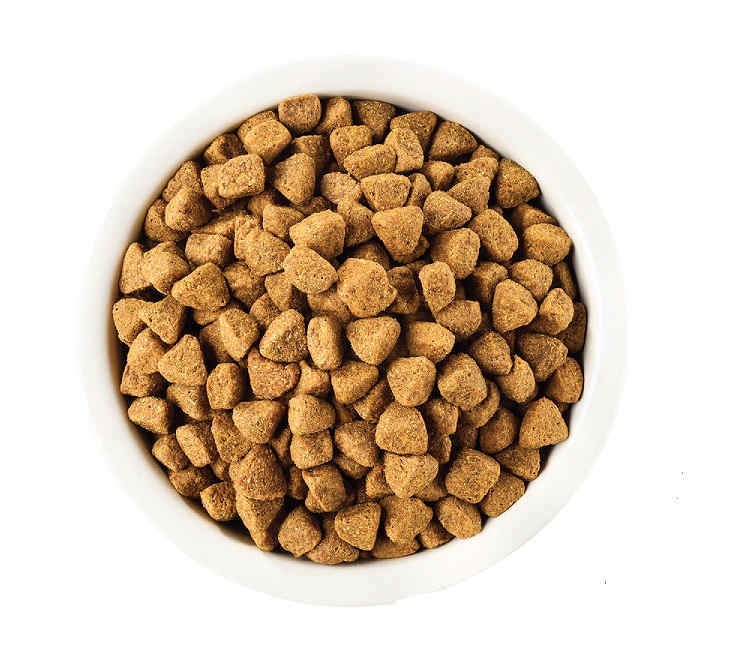
Feeding your pet dog a low fat and moderate protein diet helps reduce acid reflux.
In most cases, a change in diet holds the key to the long term management of acid reflux in dogs. Feeding your dog a diet with low fat and moderate protein helps lower stomach acid production.
These are some of the diets your vet may recommend:
Feeding frequent and small meals is also encouraged instead of one or two large ones to help control gastric acid production.
Some pups also suffer more with acid reflux when they are fed a diet that primarily consists of dry kibble. In this case pet parents may be advised to add more wet food to their diet or to look for a limited ingredient kibble that is better suited to sensitive stomachs.
Bland Diet
AKC advises attempting a bland diet for a brief period of time. Despite the fact that bland diets don't offer a complete nutritional diet, they provide some transitional sustenance and are gentle to the gastrointestinal tract.
A typical such diet includes feeding your dog only cooked chicken breast (boneless and skinless) and white or brown rice. Additionally, Native Pet's pumpkin powder can be added to your dog's diet to help prevent and treat diarrhea in dogs.
Medication
Drugs are used to reduce acid production and antacids.
Antacids such as proton pump inhibitors/PPIs and histamine-2-antagonists are used to neutralize acid that has already been produced and released in the stomach.
Coating agents for the stomach and esophagus may also be used, like sucralfate.
Surgery
If hiatal hernia is discovered and it is severe, it may need to be repaired surgically. This is a procedure that can be completed endoscopically though and the recovery time is far shorter than it used to be thanks to this non-invasive form of surgery.
Prices for hiatal hernia surgery in dogs varies greatly from one vet to another ranging from $1,000 - $5,000. So shop around and ask for prices. Also make sure to ask what is included in the price - IV catheter, anesthesia, monitoring, etc.
Recovery
It may take a while to discover just what foods are best for a pup who suffers from acid reflux, but when you do, you should ensure that he sticks to it as closely as possible.
When experimenting with new foods do watch out for signs that it is causing acid reflux. If that is the case, then you should discuss it with your vet.
You could also try adding a probiotic to your pup's diet for long-term health benefits. Probiotics aid in digestion, wards off bad bacteria, enhance the immune system and support gut health. Choose from these vet-approved probiotics - Purina and Native Pet which all contain ingredients such as pumpkin, organic probiotic mixes and other nutrients.
If obesity was a factor in the diagnosis, then steps will need to be taken to reduce his weight. Some dogs will benefit from being given an antacid medication like ranitidine, but that is a decision that your vet will discuss with you.
With proper management most pups will recover from acid reflux well although, like many humans, they may never quite be free of it. However in most cases acid reflux in dogs can be well managed and become the same kind of harmless nuisance that it is for lots of us humans.


